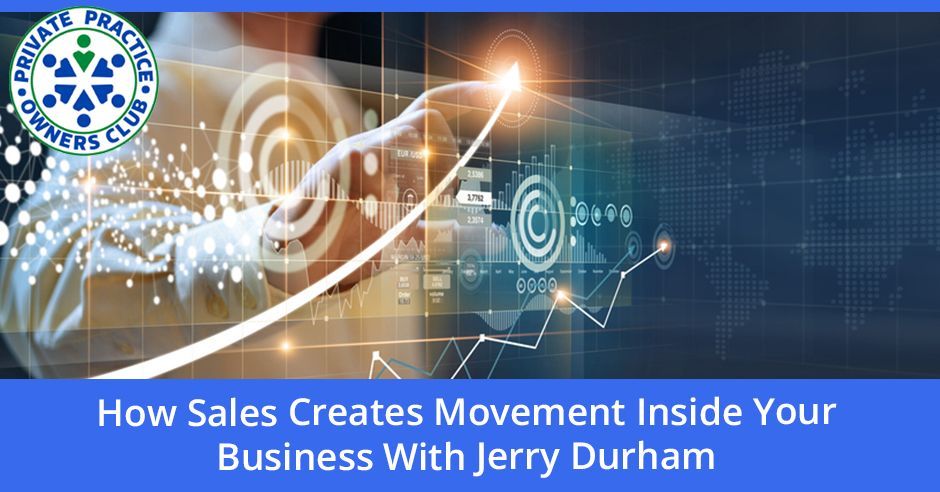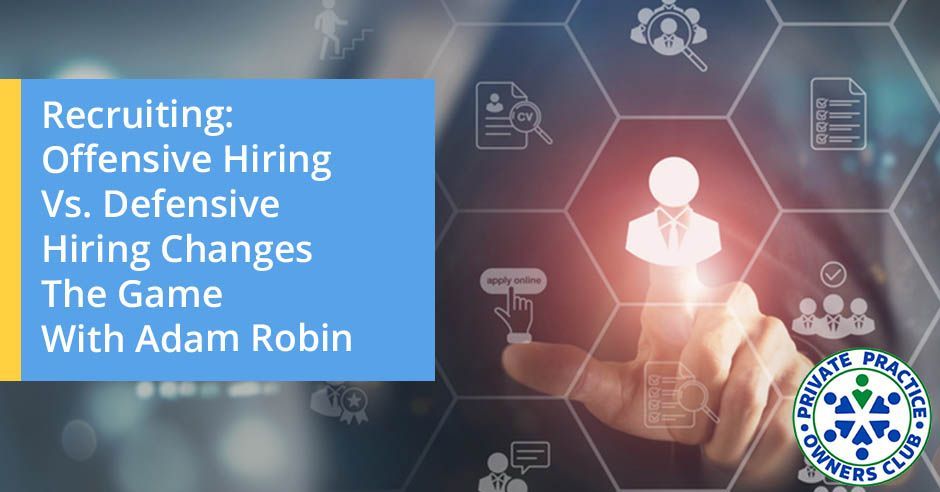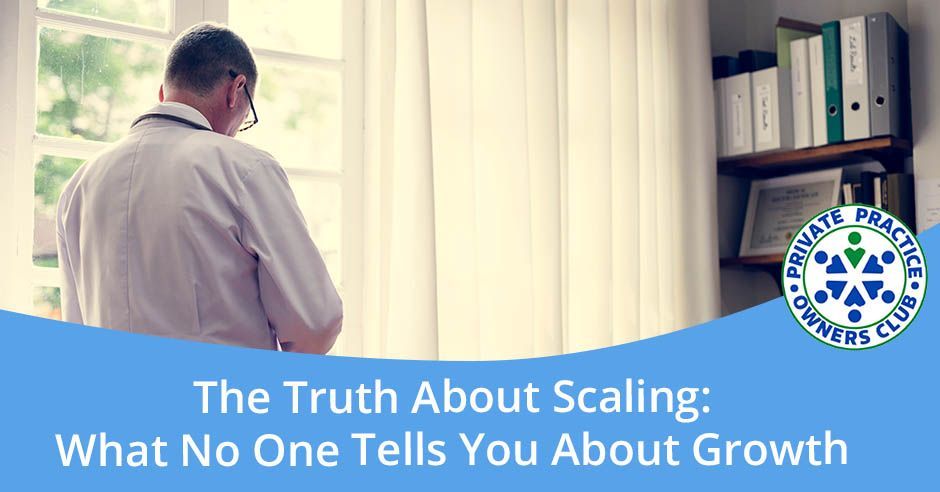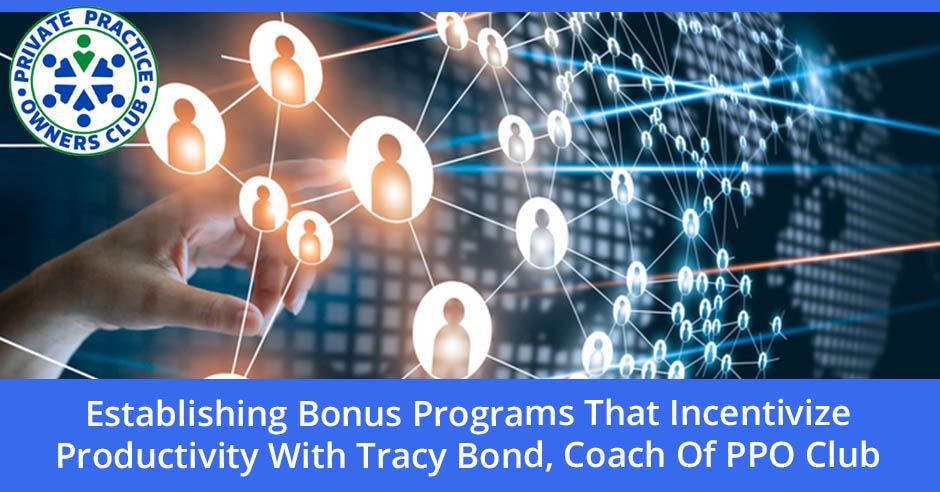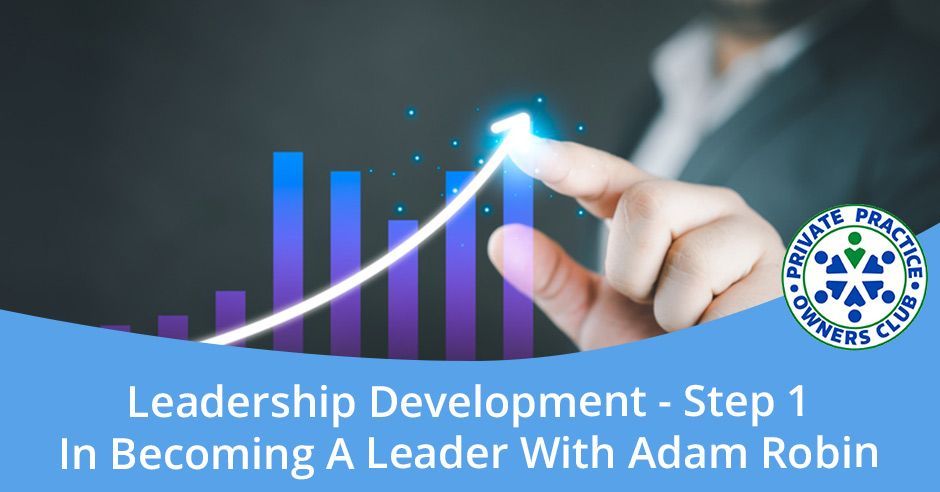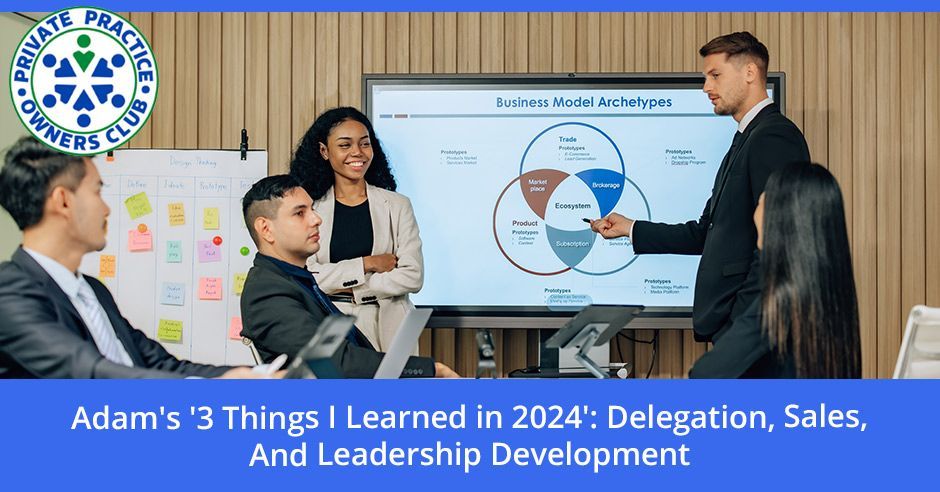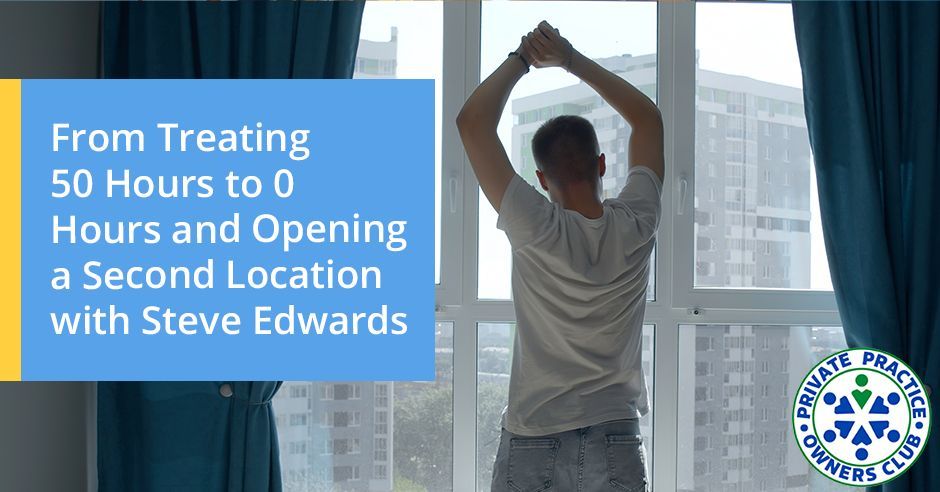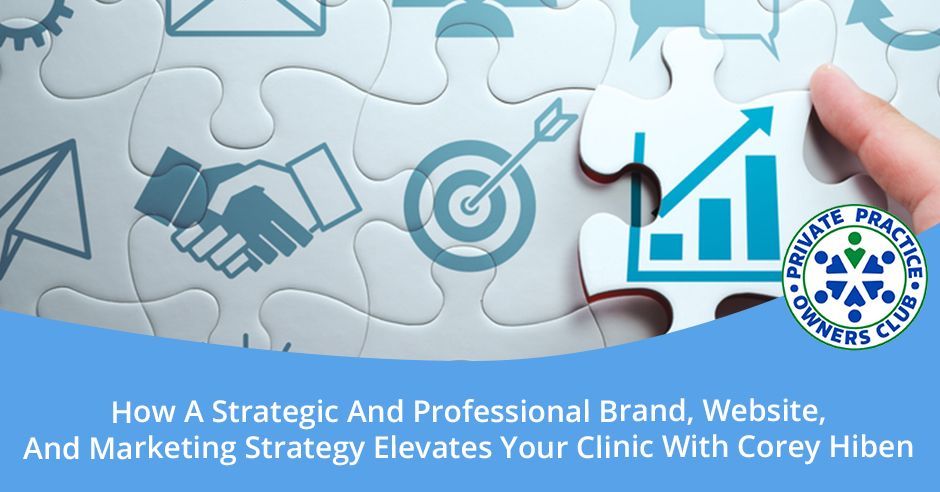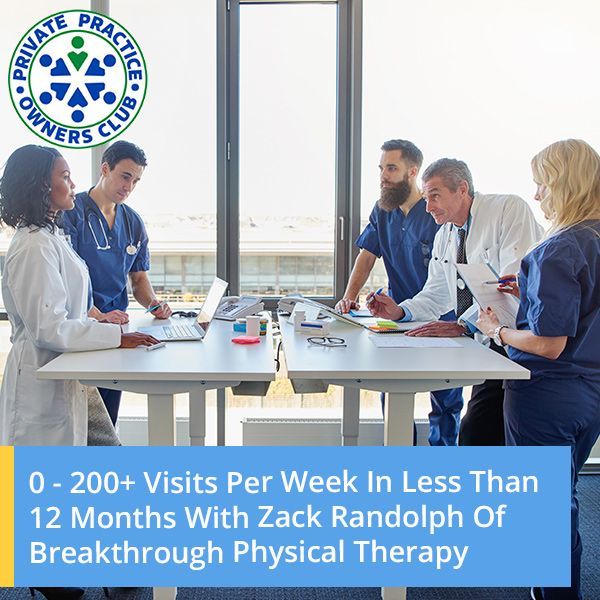At Risk & Compliance Analytics LLC, we specialize in providing businesses with comprehensive compliance solutions. Our founder, Daniel Hirsch, has over 15 years of risk management experience and is a licensed Physical Therapist in Connecticut, New Jersey, New York, and Maryland. He has experience in both Property & Casualty and Life & Health Insurance, has served as the Chief Compliance Officer for large multi-state Physical Therapy practices, is an educator on Therapy Ethics and the Profession, and has numerous compliance and ethics certifications. He stays up to date (around the clock) to ensure that standards and best practices are being monitored and communicated to you. His expertise in successfully appealing insurance denials has saved owners over $3 million. His level of proficiency in directing due diligence reviews for mergers and acquisitions is known by many to be absolutely "game-changing."
Changing The Way You Think About Compliance With Daniel Hirsch
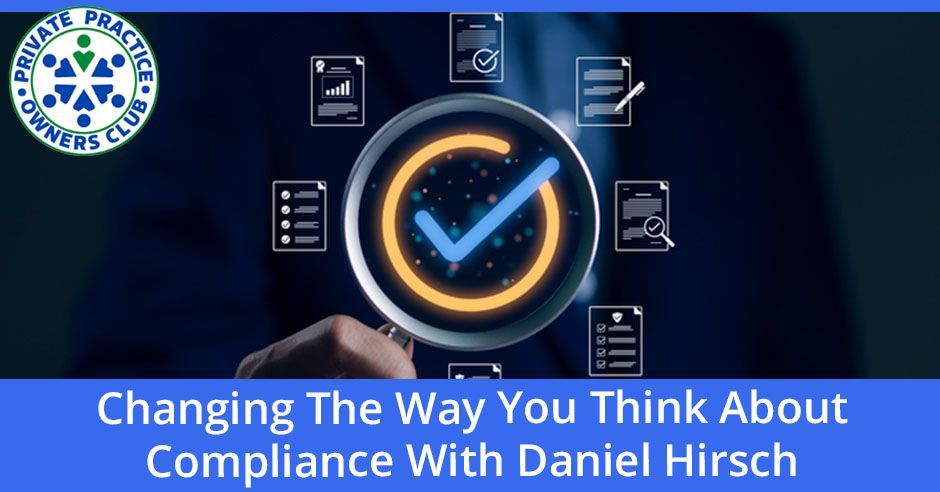
Compliance doesn't have to be confusing! Discover how to leverage it as a powerful tool for growth in your Private Practice.
In this episode of the Private Practice Owners Club podcast, Adam Robin welcomes Daniel Hirsch, CEO of Risk and Compliance Analytics. Daniel shares his mission to simplify compliance, turning it from a source of fear into a strategic advantage for Private Practice growth.
Episode Highlights:
𝗖𝗵𝗮𝗻𝗴𝗲 𝗳𝗿𝗼𝗺 𝗗𝗲𝗳𝗲𝗻𝘀𝗲 𝘁𝗼 𝗢𝗳𝗳𝗲𝗻𝘀𝗲: Daniel reveals how to use compliance proactively rather than waiting for issues to arise.
𝗟𝗲𝘃𝗲𝗿𝗮𝗴𝗲 𝗖𝗼𝗺𝗽𝗹𝗶𝗮𝗻𝗰𝗲 𝗳𝗼𝗿 𝗚𝗿𝗼𝘄𝘁𝗵: Learn how a solid compliance strategy can help you expand your services with confidence.
𝗥𝗲𝗱𝘂𝗰𝗲 𝗥𝗶𝘀𝗸 𝗮𝗻𝗱 𝗟𝗶𝗮𝗯𝗶𝗹𝗶𝘁𝘆: Understand how proactive compliance planning minimizes costly legal risks.
𝗧𝗶𝗺𝗲-𝗦𝗮𝘃𝗶𝗻𝗴 𝗦𝘆𝘀𝘁𝗲𝗺𝘀: Discover how Daniel’s compliance program helps you avoid wasting hours on redundant tasks while staying protected.
Don't miss this episode of the Private Practice Owners Club Podcast – whether you're just starting out or looking to expand, Daniel's insights on balancing risk with growth will leave you feeling empowered and informed.
Visit our Linktree for our Coaching Services, Free KPI Dashboard, Facebook Group, and Annual Strategic Planning Services: https://go.ppoclub.com/linktree-podcasts
Love the show? Subscribe, rate, review, and share! https://ppoclub.com/
---
Listen to the podcast here
Changing The Way You Think About Compliance With Daniel Hirsch
Welcome to the show. We have a guest. His name is Daniel Hirsch. He is the Owner and CEO of Risk & Compliance Analytics. Daniel has a background. He is a Physical Therapist. I thought it would be cool to have Daniel on because he said that he's here to help you change the way that you think about compliance.
‐‐‐
Daniel, what's going on?
What's up? How are you?
I'm good.
Thanks for having me.
It is super cool to have you. Tanny introduced us. Is that right?
He is fantastic. He's unique and a great advocate for the profession and in the private practice world. We need more of that.
I love Tanny. You will not find somebody who wants to help others win more than Tanny.
Exactly.
I love that guy.
That's a great summary. He's really passionate about helping you out, which is great. We need this.
We had a short talk over the phone. I know we don't know each other well, but the way that I experienced you was, “Here's a dude who wants to demystify compliance, go back down to the fundamentals, and help owners make this more of a simple thing as opposed to a big, complex, hairy monster that the industry tries to make it.” I thought it would be cool to bring you on, learn a little bit more about you, and let the audience get a taste of who you are and how you help owners. If you don't mind, would you introduce yourself and tell people who you are, what you do, and what you feel they need to know? I'll let you take it away.
The Importance Of Leveraging Compliance In Physical Therapy
Thanks. I am another physical therapist who got sick of seeing things the way that they were happening over the course of a long time. My background is I started out in property and casualty insurance. I insured businesses and helped limit their exposure from business operations. I then went back, got my DPT, and had a beautiful combination of these two careers as a compliance officer for very large equity-backed companies.
I don't pretend to be everything to everybody. It's private practices in this space that help people understand how to leverage compliance as opposed to this perception of, “I don't know what to do with it. This is going to be terrible.” It could also be that simply historically, everyone has some kind of bias when it comes to some audit that they had years ago from Medicare or something like that.
It’s really important to understand what is current, what the trends are going forward, and what you can do about that. It's not just a nice link to a webpage. You have to give people the tools and you have to help them do it. That's the way I wanted to be treated. That was the birth of my company where we decided it doesn't have to be complicated.
Even if you are a compliance officer for some company, why spend three months out of the year recreating the wheel? You might as well go spend about fifteen minutes finding exactly what you need, and then you're ready. If you're a small mom-and-pop, you don't want to be working the weekend or evenings when you simply have exactly what you need to operationally make great decisions. That's the uniqueness of what we do. We don't give people nice ideas. We simply say, “This is what you need to be compliant.” We simplify it but we do the work. We give the tools, give the resources, and say, “This is how you expand. This is how you could be successful.”
I'm sure you know about this. There are so many other challenges. There are so many other things. I complained to you about why insurance premiums are going up. I have nothing to do with it. There's nothing to do with all the property insurance or your liability insurance and all these other things that are impacting year over year. There's no reason to explain all these double-digit increases except that they can or, “You have to have it. They can do it, so why not increase the dial a little bit and raise the premiums 20% every year?”
The exchange is really what we're trying to impact. You should be getting more. You shouldn't be satisfied with, “I signed up for something and I'm getting something.” You should be expecting a lot more out of these services, even if it's simply for compliance where usually, you think reactive. I used to think like that. Compliance is always reactive. It’s like, “When I get that letter in the mail,” or, “When someone walks in the door that I'm not expecting,” instead of saying, “I need to build a program. How do I do this very effectively, and how do I protect my business?”
All this talk that we see from private practice sections and all these other great conferences and groups is about growth. We're always trying to grow the practices, which is good, but how do you protect that? You have to protect the growth. You can't throw all your eggs in one basket and say, “We're going to leverage growth and try to increase as many lines of services as possible.” You have to put certain components in place to stay in bounds. That's one of the skills that we have to guide people and say, “What's the program you're trying to do? Let's create a waiver for that. Let's create a unique set of either consent forms or documents that you need in order to do what you need to accomplish.” Thank God we've had a lot of success with that.
How To Use Compliance Offensively Instead Of Defensively
You said a few things, but what stuck out to me was you said the word leverage. You want to be able to leverage compliance or utilize your compliance program. What I heard was instead of playing defense, you want to play offense. You also mentioned instead of being reactive, it was being more proactive. I'm interested in that. How can we use this compliance program that you offer and the services? How can we turn this into an offensive attack or approach for practice owners as opposed to being reactive?
Addressing Compliance Concerns Early On For New Ideas
I'll give you an example. When it comes to maybe cash services, everyone's like, “What do I do?” We could talk for hours about that. There are different things that you can do to expand on cash services, but at the end of the day, you still need to create a program. How do you create a program without talking to compliance or legal? Generally, you need a contract in place where you need certain agreements in place. The idea is that once you have certain things in place, then you're able to say, “What's the workflow? How are you going to create this?”
If you're including compliance in that, you're exponentially decreasing your exposure on the preventative side. Compliance is a fantastic prevention for the cure. You want to make sure that you're able to change the perspective of when you have a new idea. Let's say you want to do something with laser or something experimental. The idea is not to say, “We're going to put that in the cash bucket and we're not going to worry about that.”
You still have exposure. You still have areas of risk to your company, your employees, or whatever line that you're trying to get into. I say line of service but it could be anything. It could be home care. It could be something else fantastic that we haven't even heard about yet. The idea is that if you address it early on from a compliance perspective, it pays dividends downstream because you're not dealing with the cleanup and not dealing with the concerns of all those other problems.
I'm the guy that you don't want to call when things go bad, or rather you want to call but you don't want to have to call because that means something already went wrong that you could have prevented. I know that's not a fantastically widely amazing thing to talk about because we don't think we're going to be the exception. Everyone's going to be, “That's not going to happen to me. That can't possibly happen to me.” Every day, I hear, “That happened to me.” That's really tough. Explaining that to owners by saying, “It could still be reasonable. It could still be affordable,” is also part of the bias that people come to the table with of, “It's going to be so expensive. There's no way I could be compliant.” The answer is you can't afford not to be. That's the challenge.
If you're running it yourself and saying, “I'll figure it out,” the truth is the laws are constantly being updated. The Notice of Privacy Practices or something that every practice has on their wall changes. It finally changed and people were like, “I didn't know that. I didn't know I had to update it.” The answer is it took five minutes of looking at your website to make that assessment. It costs nothing. It didn't cost anything for you to be compliant to have what you needed to be posted. That's the difference. We're saying you could do all these great things. It doesn't have to take a lot of time. It doesn't have to take a lot of resources. You could still be operationally successful when you have a team that understands what therapy is and what it takes to get it done.

The way I internalized that is you're talking to the private practice owners like, “What is your vision? What do you want to create? Let me help you build the boundaries and the safety net around it,” as opposed to, “Call me whenever you are in a fire.”
I don't mind the fire call, but tell me where your tolerance is. Some people are very risk-averse, so we have to pull that lever back. That's similar to my style of treating as a therapist. You could be reactive and say, “What works for you? How risk tolerant or averse are you to whatever line of service you're trying to enter into?” We accommodate that. That's the beauty where it's not this off-the-shelf nonsense that you're saying, “One-size-fits-all. Good luck with it. Come back to me if something goes wrong.”
That leads to my next question. Where do, in your eyes, you see the profession get this wrong? Where are the compliance professionals that we have in this profession getting this wrong in your eyes?
The Importance Of Understanding Your Compliance Exposures
I have to be careful answering this. I don't want to upset anybody. My biggest concern with where people are getting it wrong is that they're not explaining it in a way that private practice owners understand. This whole concept of, “I'd rather not know. I'd rather not look under the hood to know what's wrong with the transmission,” the answer is you want to know. You want to know where your areas of exposure are but you want to have the solution with that.
You don't want to tell people, point fingers, and say, “I got you. Here's what's wrong.” You want to say, “You need to do this, that, and the other in order to correct this. Let's do this together,” as opposed to pointing the finger. It's a negative feeling usually when you talk to compliance. Even me, I don't like to talk to other compliance people because it's never a positive conversation. It's never like, “How are we going to help each other?” It's always, “Are you doing this? Are you doing that?” It's always this, “I got you,” feeling. That doesn't help us. It doesn't help us as private practice learners.
I understand. They are viewing compliance through a lens of limitation. They’re like, “What about this? Gotcha. ” as opposed to, “Why don't we look through this from the lens of possibility? Let's create something out of this.” That matters a lot, especially for small practice owners.
It is tremendous. I'll give you an example. We were all traumatized by COVID. For a couple of weeks there, we didn't know what the heck was going on. For a couple of weeks, we were all looking to the APTA. We were all looking around for what was going on. There were waivers coming out. The answer was, “Let's do the right thing.” We were waiting for all this guidance from the professionals and people were shutting their doors. They didn't know what to do. I was very loud and clear in saying, “Keep the doors open. You have to allow the profession to figure this out. You can't say no to everything. You can’t be the profession of no.
For compliance, you can't be the team of no where everything is, “It's not recommended.” You have to come up with answers and strategies as opposed to saying, “For the fee schedule, what are you going to do? It’s 2.8%. We're going to keep taking these hits.” The answer is you have to leverage technology. You have to use certain components that you have available to you to take advantage of this.
That's what's so unique in the space that we are in. We've never really had this advantage from an AI perspective, an authorization for even remote therapeutic monitoring, and all these other things. We still have telehealth that got extended, which will continue to be extended. We have these great opportunities that people are sitting back and going, “Should I jump in? Should I participate in this?” You're like, “Yes.” The answer is, “Let's go. Let's do it.”
I love it. Why private practice?
It speaks to the core and the culture of who I am. Everything else in the rehab world, from a PT perspective, is very safe and controlled. It's the Wild Wild West. It always has been. It's the place to take the lead and say, “We could do it better.” It pushes the boundaries, and I love that. Even during my time living out in Denver, I was like, “Let's not be the lazy people that stopped at the Rockies. We got to get forward. We got to push past this.”
That's one of the uniqueness of private practice where people are so creative. You see it all the time. You get practice owners who are coming up with these fantastic ideas and you're like, “How do we still stay in bounds? This is what we're going to do. You have three options. Pick one.” I really think and believe that that's what people want to hear. They want to hear the solution to their ideas and how to keep them safe and protected while also helping them grow.
The way I internalized that is you're talking to the private practice owners like, “What is your vision? What do you want to create? Let me help you build the boundaries and the safety net around it,” as opposed to, “Call me whenever you are in a fire.”
I don't mind the fire call, but tell me where your tolerance is. Some people are very risk-averse, so we have to pull that lever back. That's similar to my style of treating as a therapist. You could be reactive and say, “What works for you? How risk tolerant or averse are you to whatever line of service you're trying to enter into?” We accommodate that. That's the beauty where it's not this off-the-shelf nonsense that you're saying, “One-size-fits-all. Good luck with it. Come back to me if something goes wrong.”
That leads to my next question. Where do, in your eyes, you see the profession get this wrong? Where are the compliance professionals that we have in this profession getting this wrong in your eyes?
I have to be careful answering this. I don't want to upset anybody. My biggest concern with where people are getting it wrong is that they're not explaining it in a way that private practice owners understand. This whole concept of, “I'd rather not know. I'd rather not look under the hood to know what's wrong with the transmission,” the answer is you want to know. You want to know where your areas of exposure are but you want to have the solution with that.
You don't want to tell people, point fingers, and say, “I got you. Here's what's wrong.” You want to say, “You need to do this, that, and the other in order to correct this. Let's do this together,” as opposed to pointing the finger. It's a negative feeling usually when you talk to compliance. Even me, I don't like to talk to other compliance people because it's never a positive conversation. It's never like, “How are we going to help each other?” It's always, “Are you doing this? Are you doing that?” It's always this, “I got you,” feeling. That doesn't help us. It doesn't help us as private practice learners.
I understand. They are viewing compliance through a lens of limitation. They’re like, “What about this? Gotcha. ” as opposed to, “Why don't we look through this from the lens of possibility? Let's create something out of this.” That matters a lot, especially for small practice owners.
It is tremendous. I'll give you an example. We were all traumatized by COVID. For a couple of weeks there, we didn't know what the heck was going on. For a couple of weeks, we were all looking to the APTA. We were all looking around for what was going on. There were waivers coming out. The answer was, “Let's do the right thing.” We were waiting for all this guidance from the professionals and people were shutting their doors. They didn't know what to do. I was very loud and clear in saying, “Keep the doors open. You have to allow the profession to figure this out. You can't say no to everything. You can’t be the profession of no.
For compliance, you can't be the team of no where everything is, “It's not recommended.” You have to come up with answers and strategies as opposed to saying, “For the fee schedule, what are you going to do? It’s 2.8%. We're going to keep taking these hits.” The answer is you have to leverage technology. You have to use certain components that you have available to you to take advantage of this.
That's what's so unique in the space that we are in. We've never really had this advantage from an AI perspective, an authorization for even remote therapeutic monitoring, and all these other things. We still have telehealth that got extended, which will continue to be extended. We have these great opportunities that people are sitting back and going, “Should I jump in? Should I participate in this?” You're like, “Yes.” The answer is, “Let's go. Let's do it.”
I love it. Why private practice?
It speaks to the core and the culture of who I am. Everything else in the rehab world, from a PT perspective, is very safe and controlled. It's the Wild Wild West. It always has been. It's the place to take the lead and say, “We could do it better.” It pushes the boundaries, and I love that. Even during my time living out in Denver, I was like, “Let's not be the lazy people that stopped at the Rockies. We got to get forward. We got to push past this.”
That's one of the uniqueness of private practice where people are so creative. You see it all the time. You get practice owners who are coming up with these fantastic ideas and you're like, “How do we still stay in bounds? This is what we're going to do. You have three options. Pick one.” I really think and believe that that's what people want to hear. They want to hear the solution to their ideas and how to keep them safe and protected while also helping them grow.
People want to hear the solution to their ideas and how to keep them safe and protected while also helping them grow.
My favorite question is, what would have to be true for us to win or what would have to be true for this to work? I like the answer to that question as opposed to, “This is why you can't do this.”
Nobody wants to hear that.
It's super frustrating. I heard all kinds of cool stuff about how you help owners, but I want to hear more about who you serve most often or the type of owners you work with primarily. We'll see what bubbles up. Also, what are the common themes of things that you really enjoy helping owners with?
I do small and very large. I do solo practice, which is one PT and an aide. I help equity-backed companies as well in multi-state. It’s all across the board. It’s all across the country. We have knowledge of state-specific rules of how to process medical records that people don't even understand. A lot of times, people are like, “I thought I could do it.” It's like, “There are laws that are constantly updated that you have to follow. Here's your policy. Let's go execute it.”
What gets me excited is the ability to calm people down when the worst day happens to them. Some incidents will happen or something terrible will happen. The idea is that you could address it. You could address it and minimize the damage. It could be a breach. It could be anything. You may not think your laptop will get stolen out of your car but the truth is that happens all the time. It may be that an email gets sent to the wrong mailing list. All of a sudden, you have PHI floating all over the place. How do you investigate that? How do you minimize the exposure immediately? The clock's ticking.

That's what excites me to be able to help people, an owner specifically, who don't want to deal with that. That's not what they went into this for. Their bad day is something that immediately we could address. I value everyone's time. Being available when they need it is also critical. It's not this, “We'll call you in the next three weeks.” It is, “You'll hear from me in the next five minutes because this is important to you. We need to deal with it right now.” That's the way I want to be treated.
I sign up for your stuff. How does it work?
The stuff is compliance. Think of it this way. We solve everything that you need from a compliance perspective or from a department. Even if you're a large company or a small company, we customize all this for you. It's January 2025. Everyone's working on their work plan, their stretch goals, and all this great stuff but they're burning weeks and months recreating the wheel. The simple answer is you don't have to. Even for something as simple as education, everyone has to educate their staff. How do you do it? What do you do for your compliance training for your staff?
Review it. We do quarterly compliance. We do chart audits. We do all the stuff.
Do you take students? Do you have any patients?
We do.
Generally, they don't get formal compliance training. We see this all the time in cases of incidents and stuff like that that involve students. Usually, it leads directly back to there being no education and that we didn't train them on that because we thought the school was going to be training them on it. We simply solve all of this. We say, “Do you need training? We got you, or, “If you need your student training, we're not going to make it a financial burden for you. It's going to be a flat $12.” It covers everything you need to know about a student clinical affiliation for compliance, HIPAA, OSHA, you name it. It comes to your foundational resources.
Everything that you need to implement a program, including front desk, operations, and clinical, we have it. There are department-specific items. If you need IT or policies, we've got that. We have HR and marketing. It's the whole gamut. We take care of everything that falls under this very large umbrella. If there's something that's unique, like you need your insurance reviewed, we specialize in that or due diligence.
I don't want to say chart reviews because most people don't do that anymore, but the truth is nobody's doing that. If people are doing peer reviews, I'm begging you. Stop doing peer reviews. It's meaningless. Nobody does it. It was considered an industry standard many years ago. There are already better ways to do it. It's quicker. Nobody wants to do it. No therapist ever got hired going, “I can't wait to give up my lunch every quarter.” It's wasting time.
The hours matter. They add up. When people and staff realize that you're investing in them, it is not even the money. It's simply you're solving for a thing that they don't want to deal with. That's the biggest benefit. There are other people who do this, but we are unique in the sense that we're so dialed into what owners need from a uniqueness for customizing exactly what they're trying to accomplish. We understand what those goals are and then deliver.
I'd get a huge library of resources from pretty much any domain or area of the business that I could think of, which are front desk, marketing operations, taking students, hiring people, and Medicare compliance.
Even weekly updates. There are tasks. They're all liability exposure tasks, like making sure that you have certain things in place. It keeps you on track. We don't tell you what to do. We show you how to do it. That's really different where it's not, “Here's a nice idea,” or, “Here's a website to go look at. Figure it out and read it.” We tell you exactly what you need and how to do it.
You implement that system and plug it into the practice. You simply follow the checklist and you should be more compliant than most practices.
We're also on demand. The idea is once you're in, you're in. If you have a quick question, it costs nothing to send a text. People really like that. That's what I love. I love having access to other services where it's not complicated. I feel like that's what people also want from me and my business. If you have a quick question, you don't need an expensive attorney for an hour figuring this out. Maybe a 30-second text gives me exactly the answer that I need and then I move on. That should be the standard but we haven't seen that. That's what we're trying to set.
I have those questions all the time, especially like, “Can I market this? Am I allowed to say this in my marketing message?”
Google and ChatGPT are all good, but from a compliance and legal standpoint, it's not always accurate, it's not always up-to-date, and you can't always rely on it. I'll get screenshots of, “This is what ChatGPT found out for me.” I'm like, “That's good but it doesn't apply to you because,” and then we give them the reason.
What about the whole dreadful thing like, “I'm getting audited by Medicare. I failed.” I had one client whose provider's PTAN number was terminated and they came after her to collect months of revenue. All the scary things that you hear, how do you guys support practice owners with that type of stuff?
It depends on what it is. We have in-house counsel. We have accounting. We're able to do stuff that other people can't do, but it really depends. It depends on what the situation is, if it is we need to read the fine print and figure out how to respond correctly. When you say audit, that should not scare anybody. Everyone will be audited. I firmly believe that they're fully funded. There's no reason why they're not. They slept for two and a half years during COVID. They're back. If you have not been audited, it's probably a miracle at this point.
They're going to audit and say, “You owe us money. We're going to have to do an appeal.”
It takes time and money. If your staff had a game plan and all of a sudden, they're interrupted and their day, week, and month is ruined because of this administrative burden, is it them and your team that's going to be able to fix that and apply what you need or do you need someone that could quickly and effectively manage that, address it, and appeal it? That's how people should think, and they don't often think like that. They think, “My front desk will deal with it.” Forty hours later, you're still dealing with it. The answer is, “It’s probably a 30-minute problem. Why couldn't we address it?”
That's awesome. You went on a little bit of a rant right before we pressed record. We talked about going on offense. We talked a little bit about what you're feeling called to do and how you support owners. Tell me more about what else owners should know or need to know about this compliance thing, especially in 2025. There have been some Medicare changes. There have been some updates. What are some things that you see coming down the pipe that owners should be aware of as they grow their business in 2025?
How To Minimize Your Operating Costs By Leveraging Technology
I'm a big fan of having a phone in front. You need to have resources or your round table. You need to have a round table of advisors, and if you have a marketing question, you go there. If you have a compliance question, you go there. You need to have those resources. It's too much to consent. People need to realize that they can't do everything. If you want strategies for compliance, there's a lot of free stuff out there.
People need to realize that they can't do everything. You need to have those resources.
It costs nothing to go on these webinars. I was ranting before because I don't like it when people tell me that it's too expensive to get this compliance information. They wanted to take this weekend course or they wanted to find out something that should be publicly available and it's costing money. I'm like, “That's not right.” It's not right for the profession. That's why I get fired up when I see these things and I see these postings. I'm like, “It can't be this way. This is not the way it should be.” The information should be flowing directly from either the profession or from commercial payers.
We're in a world of private practice where we have federal commercial players. We have the APTA, which is fantastic. They try to keep up. This stuff happens all the time. It's unique to where you are, like your ZIP code and your state. These variables impact how you operate. It is understanding that if you need a state-specific question, you need to go to that resource.
You should not be afraid of reaching out to your local representative or local state chapter. You shouldn't be afraid of going to whoever. People don't realize that you have to have these resources or you could have a resource that has those resources, which is good too. That's what I do. I have my resources and I'm able to do that in a very quick and effective way to get people the answers that they need.
You mentioned new CPT codes that have come out and understanding the language behind that and the plan of care. We learned about this big win apparently for the plan of care. I don't know any billing company that has changed anything that they're doing. It doesn't really affect anybody other than going back and technically requiring prescriptions again, which is silly. I understand that the end goal was to minimize the administrative burden. They didn't do that. You still have a huge paper trail that you have to document. It did solve the three attempts to get a signed plan of care myth. That was an urban legend. That put that to bed. We knew that. Medicare has said many times that it doesn't exist, which is great. It reiterated that.
If you're an owner tuning in, you need to understand that in 2025, Congress didn't bail you out. Year after year, the trend keeps happening. I love trends. It’s the whole point of, “Did your insurance go up?” It's going to continue to go up. Why? We're seeing trends that the cost of doing business is expensive. Everything is costing more. How do you minimize your operating costs? You have to leverage technology. You have to do a lot of different things.
Compliance is one of these areas, and when something goes wrong, it's expensive to fix. I'll give you a car anatomy. It’s the same thing. You could run the gamut and say, “I'm not going to do the oil change. I'm not going to worry about it,” but then you are like, “It's only about $100. Maybe I should get that oil change done.”
Compliance is one of these areas that when something goes wrong, it's expensive to fix.
That's the concept that I take with everything in life. If you could do it now and it makes a lot of sense, you probably should. If you need to train your workforce, what are you waiting for? Simply give them the power and the tools to make good decisions instead of saying, “I didn't know. I didn't know that was a standard. I didn't know that was a requirement. I didn't know how to do that. I didn't know how to encrypt my email.”
All these things that happen are preventable from a compliance perspective. You could prevent all this great exposure to your company or even simply having necessary things that you could get in trouble for. For instance, even having translators. I've talked many times about how it's very expensive, and yet there's a law that requires that you have to have this type of translating service for fifteen of your top languages. There are effective ways of doing that. I don’t want to say clever, but there are creative ways to do this.
It doesn't have to be black and white. When you speak to other people in my space, it's very black and white. It's simply recommended or it's not recommended. The truth is there are a lot of ways to get things done accurately and effectively. That's what people should do. Owners should sit back and say, “Where's my pain point? What do I hate doing? Do I really want to spend my Sundays creating policies?” Probably not. It's probably not a great idea, but more power to you if you do, which is cool. If you enjoy giving up Sundays to draft front desk policies, that's okay.
These are things that have to be reviewed every year. Your HIPAA manual, OSHA handbook, and documentation standards all have to be documented in order to reference in the event that an auditor walks in or your staff files a complaint against you. It doesn't matter. All these things have to be documented and they have to be up-to-date.
Why You Should Take Advantage Of The Resources Available To You
It's so fitting to have this conversation because we're going to be reviewing our compliance program this 2025. This is the 1st time we're leaking this, but we're going to have another in-person conference the 1st weekend of October 2025. It's all going to be about how to scale your practice, like the successful actions that people take to scale their practice. Compliance is a huge piece of it. If you're going to grow to three, four, five, six, ten, or twenty clinics, you probably want to make sure your compliance is dialed in. Otherwise, the risk grows exponentially every time you open another location.
You’re a bigger target. I've seen owners who are so risk averse and I'm like, “Let's have a talk. We need to turn the dial down a little bit.” That's what's unique. People don't expect to hear that from me. They don't expect to say, “Pedal down. Let's go. We need to take this risk because it's a good risk.” I'll give you an example of group coding. I don't know if you're old enough for this, but years ago, everyone got audited for the 97150 code because it was being widely abused. It was terrible. It’s the same thing with the re-eval code. Many years ago, everyone billed for it every 30 days. It was a thing that got abused, and then it got audited. It was a hard stop. People stopped billing these codes.
Anytime I look at CPT code distribution, I'm like, “How are you not billing this code? How is that happening? How are you effectively managing your schedule? This is a great code. It's very valuable because 1 minute is equal to 20 minutes. It's a fantastic opportunity that you're completely avoiding.” People are like, “I remember back in the day.” I’m like, “That historical stuff, you can't bring that to the table right now because you have to know what's accurately taking place now. Right now, that is not an issue or a concern.” That's refreshing to a lot of people. People are like, “I didn't know that I could take advantage of this,” which is great.
I love how you think like an entrepreneur.
I had my practice. It's one of these things where we need advantages everywhere that we have control. It's all about whether we have control. 2.8% for Medicare? We don't. We are not in control of that. At the APT level or any kind of larger scale, we're not in control of that, but we do certain things. I firmly believe that owners need to take advantage of that, and that's what I'm here for.
If they want to get in touch with you or if they want to reach out and learn a little bit more about your service, how would they do that?
The easiest way is online. RiskAndComplianceAnalytics.com is the website. They can find me on LinkedIn. They can search my name, Daniel Hirsch. It's one of these things that is not hard to find. There are only twelve of us that do compliance for therapy. We're proud to be unique. We don't play the whole game of fear-mongering in this whole, “The sky's falling,” thing. We could control a lot and we should take advantage of it.

I appreciate your time. Let's schedule another time to do this. We'll do an update on maybe the 2nd half of 2025.
That sounds good. Thank you.
Thank you. Have a good one.
You, too.
Important Links
- Risk & Compliance Analytics
- Daniel Hirsch on LinkedIn
- Physical Therapy Amory MS - BreakThrough PT
- PPO Club Linktree




